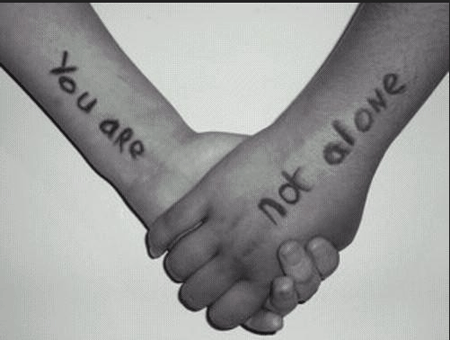What is Suicidal Tendencies? Know about the signs and Symptoms of the person Going through such tendencies and help them save their life

Suicidal thoughts are prone in people having previous suicidal attempts or serious mental disturbances. Hence one should apply some of the preventive measures to avoid any kind of risks.
People of all ages can develop suicidal thoughts. With the news of celebrities like Chester Bennington and Chris Cornell committing suicide it makes us wonder how can a person think about taking their own life.
But there's no particular test to determine an individual being prone to suicidal thoughts than others.
However, there are many steps a person can adopt as a responsible guardian. Recognizing the signs of suicidal thoughts, parents can help intervene with a child before he/she harms himself.
What is Suicidal Tendency?
Suicide is the act of taking one's own life. As per a report from the American Foundation for Suicide Prevention, suicide is one of the leading causes of death in the United States, taking the lives of approximately 43.000 Americans each year.
There's no single reason why someone may try to take their own life. There are certain factors that can increase the risk. Someone may commit suicide as a cause of previous mental health disorder.

About 90 percent of all the suicidal attempts have a deep connection with mental illness at the time of death.
Notably, depression is the leading risk factor, but there are various other mental health disorders that can contribute to suicide, including bipolar disorder and schizophrenia.

Besides mental illnesses, there are several risk factors that literally aids suicidal attempts. Some of them are as follows:
- Previous suicide attempts
- Substance abuse
- A family history of suicide
- Poor job security
- Incarceration
- Being diagnosed with serious health conditions like cancer and HIV
- History of being abused or witnessing continuous abuse
- Being socially isolated
- Being exposed to suicidal behavior
People over age 45 and especially men are at higher risk for suicide. Some other include Caucasians, American Indians, or Alaskan Natives.
Signs and Symptoms
Warning signs that someone may be thinking about or planning to commit suicide include:
- Talking about death and suicide time and again
- Depression- deep sadness, loss of interest, trouble sleeping and eating
- Having a "death wish", tempting risks that could lead to death
- Losing interest in a specific topic one used to care the most in past
- Making comments about hopeless, helpless. or worthless
- Saying things like "it would be better if I wasn't here" or "I want out"
- Visiting or calling people to say goodbye
- Avoiding social interactions with others
- Sleeping too much much or too little
- Eating too much or too little, resulting in significant weight gain or weight loss
- Engaging in reckless behaviors, including excessive alcohol or drug consumption
- Expressing rage or intentions to seek revenge

According to the American Foundation for Suicide Prevention, about 20-50% of people who commit suicide have had a previous attempt.
Aids to Minimize Suicide and Depression
Individuals with a mental illness and problem should strictly visit a doctor and get treatment in time. Some might feel helpless and lonely during such condition. Family and friends have a key role to play in such crucial scenarios.

The following steps may help lower the risk of suicidal ideation and suicide attempts:
- Dedication and adherence on some specific plans- with a treatment plan, follow-up plans, taking medications as instructed, etc.
- Avoid taking drugs and excessive amount of alcohol
- Avoid isolating oneself- try to stay connected to the outside world
- Do exercises, yoga, and meditations
- Eat well balanced and a healthy diet
- Remain fully connected with the family; share each and every matter even a minor one
- Focus on good things and try to develop a positive attitude
- Get a sound sleep; 7-8 hours a day
- Avoid keeping gadgets like guns, knives, and dangerous drugs nearby
For more updates and more details visit our official page.
